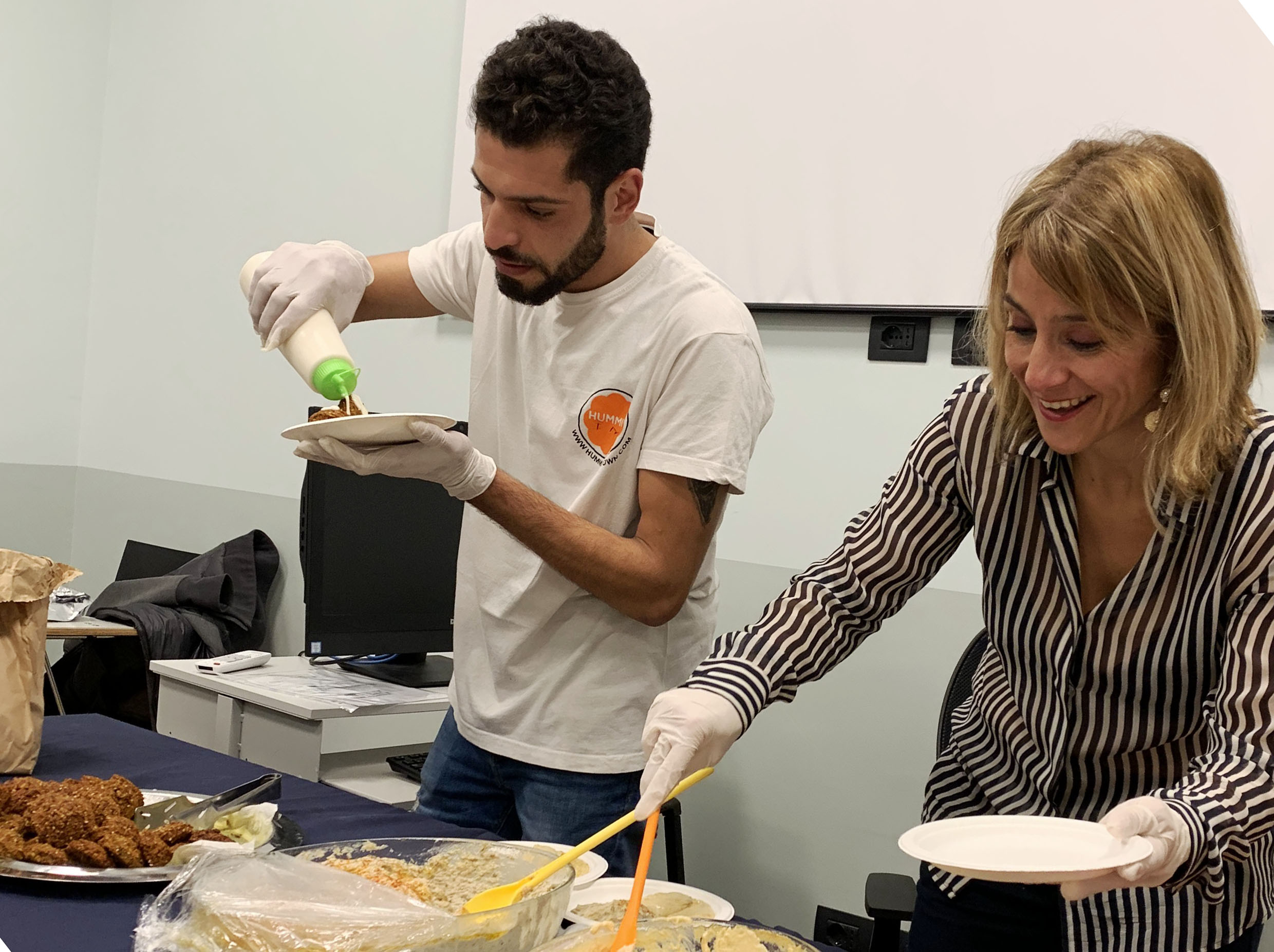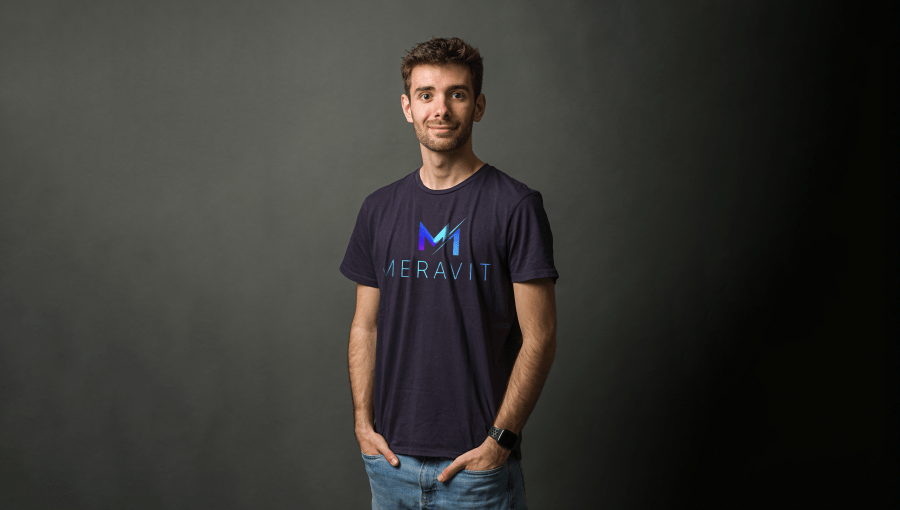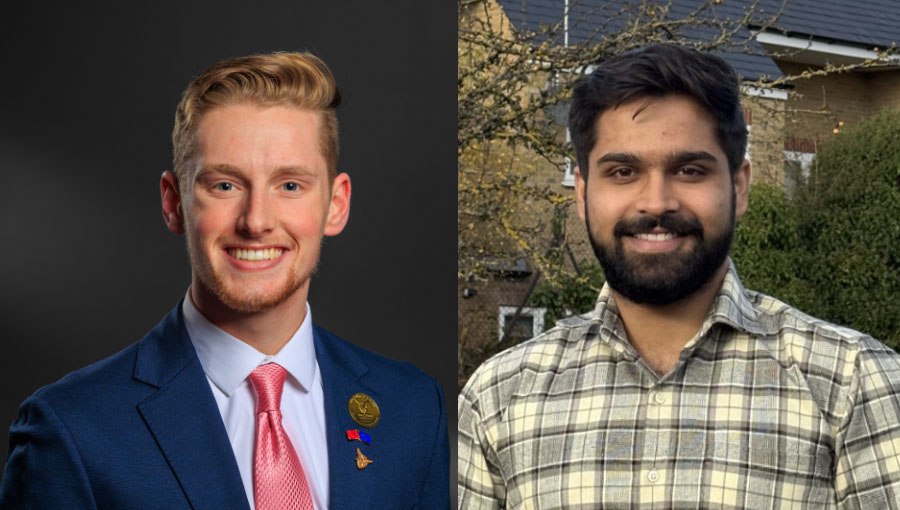Alumna Shaza Saker, Founder of Hummustown, on Employment for Refugee Integration
Service Learning – Combining Fieldwork and Education – invited JCU Alumna Shaza Saker on November 20, 2018 to discuss the key role of employment for refugee integration in the Italian context.
A native of Syria, Shaza moved to Italy when she was three years old but remained close to her culture by visiting her home country every summer. She is currently working at the Food and Agriculture Organization of the United Nations as a Program Officer and is the founder of a startup called Hummustown.
Hummustown is a catering business that Shaza launched in order to help Syrian refugees find the financial independence and stability they need in order to achieve integration into Italian society. Tired of watching the plight of so many people forced to leave their homeland, in March 2017, Shaza decided to take action to help Syrian refugees in Rome. She started her activity in a comfortable home setting: her friend Jumana would cook food from the rich Syrian culinary tradition and Shaza would invite friends to dinner in exchange for a donation towards the cause. In time, Shaza realized how many Syrian refugees came to Italy only to find unemployment and alienation. ”Despite the variety of skills they all individually have, refugees are at an immediate disadvantage given the language barrier and the lack of a support network,” Shaza observed. To solve this problem, in January 2018, Shaza started a Gofundme campaign in order to open a kitchen and expand her catering business, all the while offering Syrian refugees a dignified income and sense of belonging, as part of a greater family.
Since its foundation, Hummustown has been catering numerous large-scale events such as banquets of 200+ people as well as smaller gatherings including various JCU events. It is no coincidence that Hummustown is a cooperativa sociale (social cooperative) and not an NGO. Shaza specifically chose to set up a cooperative so that the Hummustown’s caterers and cooks could be partners of the business and not mere employees. After the Gofundme campaign, a wish list was added to the Hummustown website, listing all the different items needed to make the kitchen fully operational. Anyone can contribute by donating new or used pots, pans, forks, and other utensils.
Shaza stressed that the importance of employment for refugees extends beyond the economic aspect. It is a two-step process. First, it is important to give the team a goal for the day. “They wake up knowing they have something to look forward to. It is satisfying to work together towards common objectives: sending money back home to our relatives and seeing Hummustown grow. We have become a family, and I honestly could not run Hummustown without them.” Second, employment helps increase interest in social inclusion. “Through our catering events my team has become more eager to learn Italian and to better connect with the community. They start seeing Hummustown as a stepping stone, lifting them up and giving them the opportunity to move onto better things,” said Shaza.
Finally, Shaza went on to explain the importance of a good support system when working in the humanitarian field. “Demoralization, long and messy bureaucracy, and other obstacles can only be overcome with positive and supportive people around you. My husband, my children, my Hummustown family, and my clients are all part of Hummustown – its success is inevitably linked to them.”







